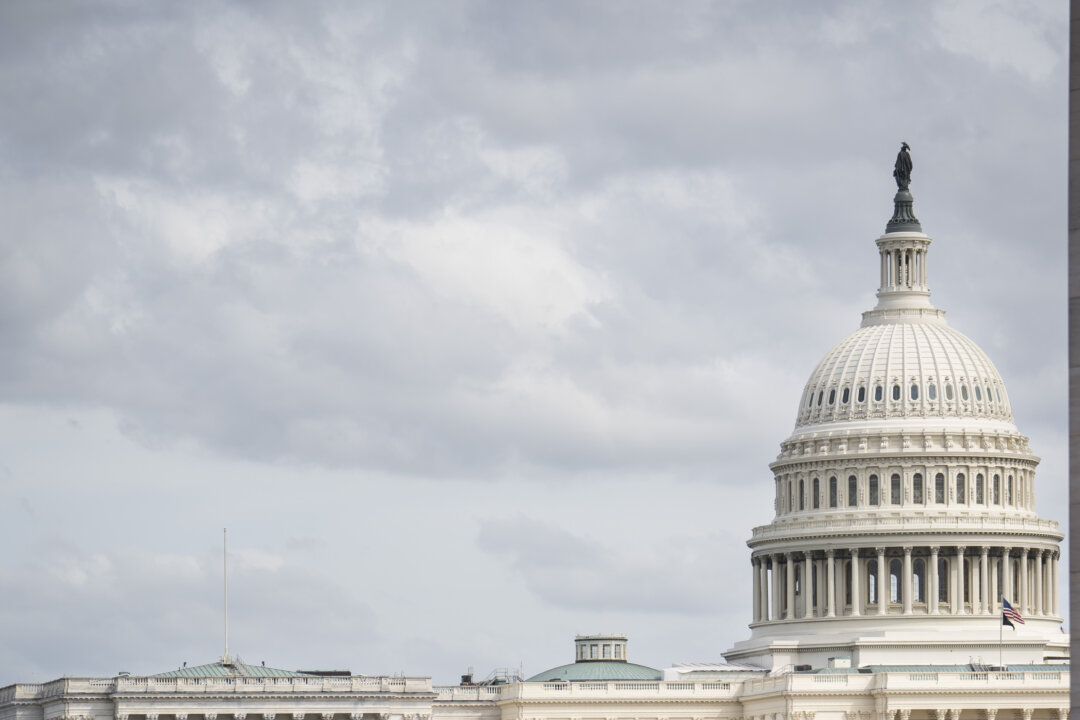Incumbent Rep. Marc Molinaro and challenger Josh Riley spar in a heated debate in a race getting national attention as Election Day draws near
NEW YORK—Incumbent Rep. Marc Molinaro (R-N.Y.) and Democrat challenger Josh Riley clashed in a spirited and sometimes uncivil debate on the evening of Oct 10, just weeks away from the election that will determine who represents New York’s large 19th Congressional District in the U.S. House of Representatives.
The two candidates sparred over a range of issues including migration into New York state, crime, antiterrorism, energy costs, abortion, and taxation.
The debate often seemed more like a personal argument than a discussion of policy.
Molinaro said his opponent had not changed since they ran against each other in 2022, and still clung to the same policies that voters rejected two years ago.
Both candidates tried to present themselves as a product of humble, working-class milieus in upstate counties. Riley alluded to his early years in a blue-collar area of Endicott, New York, where, he said, most adults held factory jobs and valued work ethic above all.
Molinaro described himself as a “kid from a working-class family” who dealt with his father being laid off when IBM downsized. He attempted to paint Riley as a Washington insider who spent his formative years in the world of Big Law, sometimes representing clients, such as Chevron and convicted rapist Harvey Weinstein, who were openly hostile to the values and policies that Riley champions.
Molinaro sought to present himself as the opposite of a Democratic political establishment that, through lax policies, had facilitated the illegal immigration of more than 10 million people, including known criminals and terrorists, across the southern border.
New York state is a top destination for these new arrivals, and the trend has resulted in a number of high-profile crimes in the district, he said. Molinaro cited the recent murder of a woman in Syracuse, New York, allegedly by an illegal immigrant, and the rape of a woman in the Catskills region a year ago, also allegedly committed by an illegal immigrant.
Riley sought to deflect these criticisms by painting the failure to control the border as bipartisan, born of Republicans’ and Democrats’ lack of initiative and failure to send the necessary number of agents to the border.
The Democratic challenger reiterated his characterization of himself as an economic populist familiar with the struggles of working people. Riley presented the choice facing voters as a decision between economic pragmatism and corporate interests.
“Nobody ever asks, ‘How are we going to pay for the tax cut that he voted for?’” Riley said. “Nobody asks how we’re going to pay for the carried interest loophole to give billions of dollars to hedge fund executives.’”
Molinaro sought to convince viewers that he understands the burdens facing families much better, having himself paid Central Hudson Gas & Electric’s high utility bills. Property taxes upstate are far out of line with those prevailing nationally and are an added burden for people of modest means, he said.
“We shoulder the highest burden of property taxation of any state in America. I continue to fight to drive down costs,” Molinaro said.
The candidates sparred over the issues of energy costs and energy independence. Riley said he supports the development of facilities upstate that can produce lithium ion batteries, provide jobs, and help foster sustainable energy.
The two candidates also clashed on Middle East policy. Riley acknowledged that Hamas and Hezbollah are terrorist organizations that enjoy Iran’s backing. Molinaro expressed strong support for Israel in its current war, along with sympathy for American Jews who have experienced a surge of antisemitism in the year since the Oct. 7, 2023, attack by Hamas.
“What frightens me is [hearing about] Jewish citizens who have seen an escalation of hate and violence. At the end of the day, we need to confront anti-Semitism as the cancer that it is,” Molinaro said.
Early in-person voting opens in New York on Oct. 26 and runs through Nov. 3. Election Day is Nov. 5.

